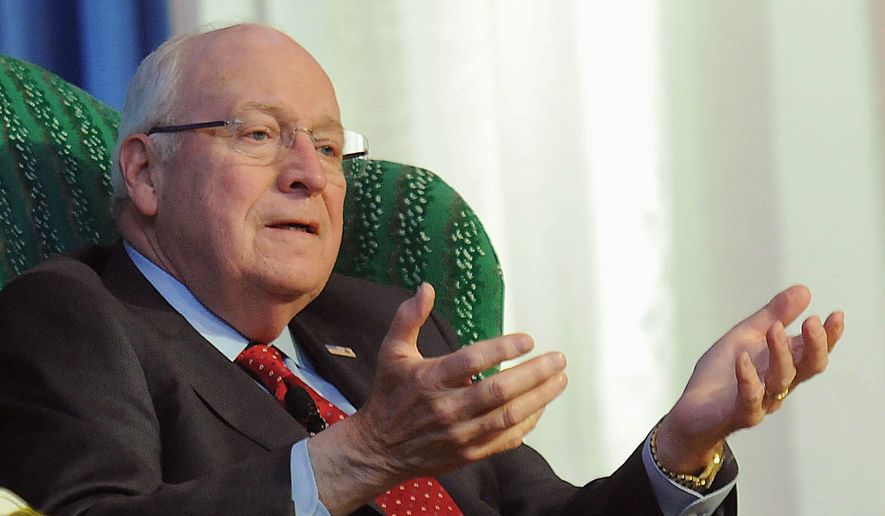Former Vice President Dick Cheney said Tuesday the nuclear agreement President Obama and other world leaders reached with Iran breaks nearly every red line the administration had drawn in the run-up to the negotiations, and will spark a new nuclear arms race in the Middle East.
Mr. Cheney, speaking at the American Enterprise Institute, was interrupted by a protester saying he was wrong on the invasion of Iraq and is wrong on his hard-line stance on Iran, too.
But the former vice president marshaled all of the arguments against the deal, saying it was “completely tailored to the demands of the Iranians,” will allow them to revitalize their military program and spread terrorism, and relies too heavily on them to self-report their own failings.
“We are essentially leaving it up to Iran to let us know where and when they might have engaged in illicit nuclear activity,” Mr. Cheney said.
His speech marks the kick-off a September debate over the nuclear deal, with votes in both the House and Senate expected over the next week or so.
Democrats already have enough votes to preserve Mr. Obama’s deal intact, but opponents are intent on making them pay a hefty political price for backing the president.
Mr. Cheney, in his speech, took particular aim at Secretary of State John Kerry, who he said drew a number of lines on subjects such as insisting Iran detail its past nuclear history in order to aid new inspections, only to relinquish that demand in the final deal. Mr. Cheney said without information on what Iran did in the past, it is impossible to accurately monitor its current activities.
Senate Minority Leader Harry Reid, the Nevada Democrat who is leading support for Mr. Obama’s deal, is slated to speak later Tuesday morning.
Mr. Cheney also defended the Iraq war decision, saying invading the country helped stem nuclear proliferation, chiefly by frightening other countries into giving up or slowing their own programs.
He said then-Libyan leader Moammar Gadhafi contacted the U.S. soon after the Iraq invasion and said he wanted to give up his nuclear program.
“He had watched the fate we delivered to Saddam and he didn’t want to be next,” Mr. Cheney said.
And he said there is “evidence” that Iran itself had halted its own programs in the wake of the 2003 invasion, also fearful of U.S. military power.
• Stephen Dinan can be reached at sdinan@washingtontimes.com.




Please read our comment policy before commenting.